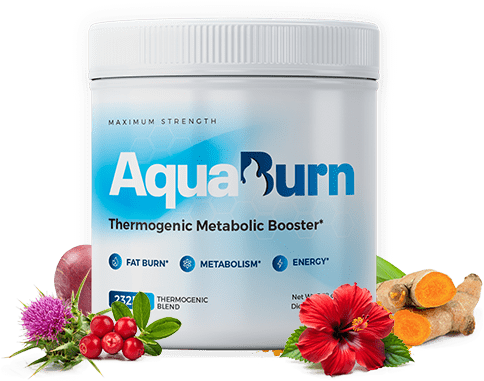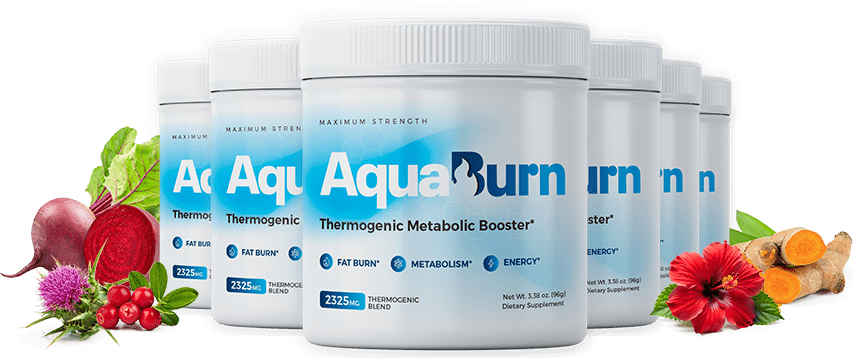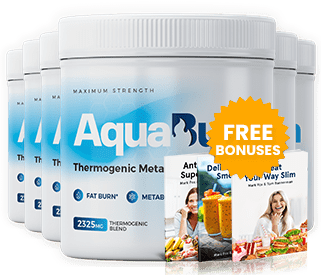
Introduction
In the world of weight management and metabolic health, supplements come and go, but every so often, a formula emerges that attracts significant attention. AquaBurn is one such supplement, marketed as a cutting-edge thermogenic and detoxification blend that helps the body burn stubborn fat while supporting overall vitality.
With ingredients ranging from resveratrol and quercetin to fucoxanthin, ginseng, ginger, cinnamon, turmeric, and detoxifying herbs like milk thistle and dandelion, AquaBurn positions itself as both a metabolism booster and a natural detox aid.
But whenever a supplement becomes popular, one of the first questions people ask is:
“What are the side effects?”
This in-depth article will walk you through everything you need to know about AquaBurn side effects, ingredient safety, user considerations, and practical tips to minimize risks while maximizing benefits. By the end, you’ll be equipped with the knowledge to make an informed decision.
Read More: Synaptigen side effects
What is AquaBurn?
AquaBurn is a thermogenic and detoxification supplement designed to boost fat burning and metabolic health. Unlike standard weight loss pills that rely primarily on stimulants, AquaBurn uses a two-pronged approach:
- Thermogenic Tissue Boosting Nutrients – Natural compounds that help your body produce and activate thermogenic tissue, which plays a key role in calorie burning and fat metabolism.
- Detoxification Support Blend – Herbal extracts that aid liver function, digestion, and toxin removal, creating a healthier internal environment for weight loss and vitality.
This dual mechanism is designed to not just temporarily stimulate metabolism, but to awaken the body’s natural fat-burning capacity while supporting long-term wellness.
AquaBurn Ingredients and Safety Profile

Thermogenic Tissue Boosting Nutrients
1. Resveratrol (Japanese Knotweed)
A powerful polyphenol known for its antioxidant and anti-inflammatory effects. Research suggests resveratrol may improve insulin sensitivity and support mitochondrial energy production.
- Possible Side Effects: Generally safe, though high doses may cause digestive upset such as diarrhea or stomach cramps.
2. Quercetin
A flavonoid with anti-inflammatory and cardiovascular benefits. It may also aid in fat metabolism and endurance.
- Possible Side Effects: Well tolerated; large doses may lead to headaches or tingling sensations.
3. Camellia Sinensis (Green Tea Extract)
Rich in catechins, especially EGCG, which enhances fat oxidation and thermogenesis.
- Possible Side Effects: May cause mild nausea or stomach irritation in sensitive individuals. Excessive intake could increase heart rate or cause insomnia due to natural caffeine content.
4. Fucoxanthin
A carotenoid found in brown seaweed, studied for its ability to promote fat burning and protect metabolic health.
- Possible Side Effects: Considered safe; rare reports of mild digestive discomfort.
5. Panax Ginseng
An adaptogenic herb known to improve energy, reduce fatigue, and support metabolic balance.
- Possible Side Effects: May cause insomnia, nervousness, or mild digestive issues in some individuals.
6. Ginger
Supports digestion, reduces inflammation, and may help regulate blood sugar and metabolism.
- Possible Side Effects: In high amounts, ginger may cause heartburn, diarrhea, or stomach irritation.
7. Cinnamon
Known for balancing blood sugar and improving insulin sensitivity.
- Possible Side Effects: Large doses of cassia cinnamon can lead to liver stress due to coumarin content. AquaBurn uses it in safe supplemental amounts.
8. Turmeric (Curcumin)
A potent anti-inflammatory and antioxidant compound that supports liver health and fat metabolism.
- Possible Side Effects: Generally safe, though high doses may cause nausea or mild diarrhea.
9. Piperine (Black Pepper Extract)
Enhances nutrient absorption and boosts the bioavailability of other compounds like curcumin.
- Possible Side Effects: Rarely, it may cause gastrointestinal discomfort.
Detoxification Support Blend
10. Dandelion
A traditional detox herb used to support liver health, kidney function, and fluid balance.
- Possible Side Effects: May act as a mild diuretic, leading to increased urination. Rare cases of allergic reactions reported.
11. Milk Thistle
A well-known liver-support herb rich in silymarin. It protects the liver from oxidative stress and supports detoxification.
- Possible Side Effects: Rare, but can include mild digestive issues such as nausea or diarrhea.
AquaBurn Side Effects: What to Expect
Based on its ingredient profile, AquaBurn is generally considered safe when used as directed. However, some users may experience mild side effects, particularly during the first week as the body adjusts.
1. Digestive Issues
- Gas, bloating, or mild stomach upset from herbal and polyphenol compounds
- Temporary nausea in sensitive individuals
2. Sleep Disruption
- Green tea extract and Panax ginseng may cause mild restlessness or insomnia if taken late in the day
3. Increased Urination
- Dandelion’s natural diuretic properties may lead to more frequent urination
4. Mild Headaches
- Linked to resveratrol or quercetin in rare cases
5. Allergic Reactions
- Extremely rare, but possible if allergic to any plant extracts (e.g., dandelion, cinnamon)
Who Should Be Cautious with AquaBurn?
While AquaBurn is safe for most healthy adults, certain groups should consult a doctor before use:
- Pregnant or breastfeeding women (insufficient research)
- Individuals on blood thinners or diabetes medications (due to potential herb-drug interactions)
- People with liver conditions (high cinnamon intake should be monitored)
- Those with caffeine sensitivity (green tea extract contains natural caffeine)
How to Minimize Side Effects
- Follow Dosage Guidelines – Avoid doubling doses for faster results.
- Take with Food – Reduces risk of stomach irritation.
- Stay Hydrated – Important since AquaBurn includes mild diuretics.
- Avoid Late-Night Use – To minimize sleep disruption from green tea or ginseng.
- Monitor for Reactions – Discontinue if allergic symptoms occur.
Benefits vs. Side Effects: Is AquaBurn Worth It?
When weighing benefits against risks, AquaBurn offers a favorable profile:
Potential Benefits:
- Boosts thermogenic tissue activity
- Accelerates fat metabolism
- Supports liver health and detoxification
- Enhances energy and vitality
- Improves blood sugar regulation
Possible Side Effects:
- Mild digestive changes
- Temporary sleep disruption
- Rare allergic reactions
For most users, the benefits far outweigh the risks, especially when used responsibly.
Real-World User Experiences
Feedback from early users highlights AquaBurn’s gentle but effective action. Many report increased energy, reduced bloating, and steady weight loss without the “jitters” often associated with stimulant-heavy fat burners.
Some users experienced mild digestive changes in the first few days, but these typically resolved quickly as the body adjusted. Sleep quality remained unaffected for most, provided AquaBurn was not taken close to bedtime.
AquaBurn vs. Other Fat-Burning Supplements
Compared to many weight loss supplements, AquaBurn distinguishes itself by avoiding excessive stimulants and instead leveraging natural thermogenic and detoxifying compounds.
- Caffeine-based burners: Often cause jitters, palpitations, and crashes
- Synthetic fat burners: Carry risks of unsafe side effects and regulatory issues
- AquaBurn: Natural, plant-based ingredients with strong antioxidant and liver-support benefits
Final Verdict on AquaBurn Side Effects
AquaBurn is a safe, natural, and innovative fat-burning formula that works by boosting thermogenic tissue and supporting detoxification. Side effects are generally mild, temporary, and avoidable with proper use.
Most people can expect improved metabolism, steady fat reduction, and enhanced vitality without the risks of harsh stimulant-based products.
As always, consult a healthcare professional if you have pre-existing health conditions or are taking medications.

References
- Baur, J.A., et al. “Resveratrol improves health and survival of mice on a high-calorie diet.” Nature. 2006.
- Boots, A.W., et al. “Health effects of quercetin: From antioxidant to nutraceutical.” European Journal of Pharmacology. 2008.
- Hursel, R., et al. “Thermogenic effects of green tea catechins.” American Journal of Clinical Nutrition. 2009.
- Maeda, H., et al. “Fucoxanthin and its role in fat metabolism.” Biotechnology Journal. 2008.
- Kennedy, D.O., et al. “Ginseng and cognition: A systematic review.” Journal of Psychopharmacology. 2001.
- Mashhadi, N.S., et al. “Ginger and its effects on metabolic health.” International Journal of Preventive Medicine. 2013.
- Ranasinghe, P., et al. “Cinnamon and blood sugar control.” Journal of Diabetes Science and Technology. 2012.
- Hewlings, S.J., Kalman, D.S. “Curcumin: A review of its effects on human health.” Foods. 2017.
- Choi, Y.H., et al. “Piperine and bioavailability enhancement.” Planta Medica. 2011.
- Kroll, D.J., et al. “Milk thistle for liver protection.” Integrative Cancer Therapies. 2007.
